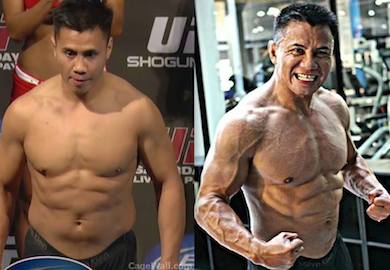Report: Lab Used In Cung Le Test Did Not Meet WADA Criteria

Since the announcement of Cung Le’s positive drug test, the Le camp has remained steadfast in his innocence.
Now, in a recent report coming out of MMAJunkie.com, it looks like their argument might hold water.
Check it: (Via MMAjunkie.com)
Following the Aug. 23 event, a phlebotomist hired by the UFC took blood samples from headliners Cung Le and Michael Bisping immediately after their fight and shipped them to the HKFMTC, the promotion told MMAjunkie. More than one month later, on Sept. 30, the promotion announced that Le tested positive for elevated levels of human growth hormone. Le countered with a statement of innocence and questioned the methods used to test him.
It’s unclear how the HKFMTC tested the samples, and the UFC declined to answer any additional questions on the procedures used in connection with the event. On the drug testing firm’s website, there is no specific mention of testing for human growth hormone, though the company does offer a test of the endocrine system including “growth factor analysis.” It’s certain, though, that HKFMTC is not accredited by the World Anti-Doping Agency (WADA), which sets guidelines used for HGH testing. The nearest WADA-accredited lab is in Beijing, a four-hour flight from Macau.
The UFC repeatedly has voiced its support for the anti-doping measures taken by state athletic commissions. This past year, it began bankrolling out-of-competition testing. But in hiring the Hong Kong company to look for HGH, the promotion failed to adhere to the testing standards recognized by the commissions it intends to follow.
WADA’s protocols on HGH testing are intended for WADA-accredited labs, which are utilized by the Nevada, California, and the New Jersey athletic commissions, among others. In order to attain such accreditation, the labs must demonstrate their ability to perform the complex procedure involved in finding HGH and must follow strict procedures set by the regulatory body in the collection and testing of blood samples needed to find the drug. There are also defined steps for adverse findings and what happens when results are challenged.
This article appeared first on BJPENN.COM
Previous Post
Topics:
UFC NEWS








